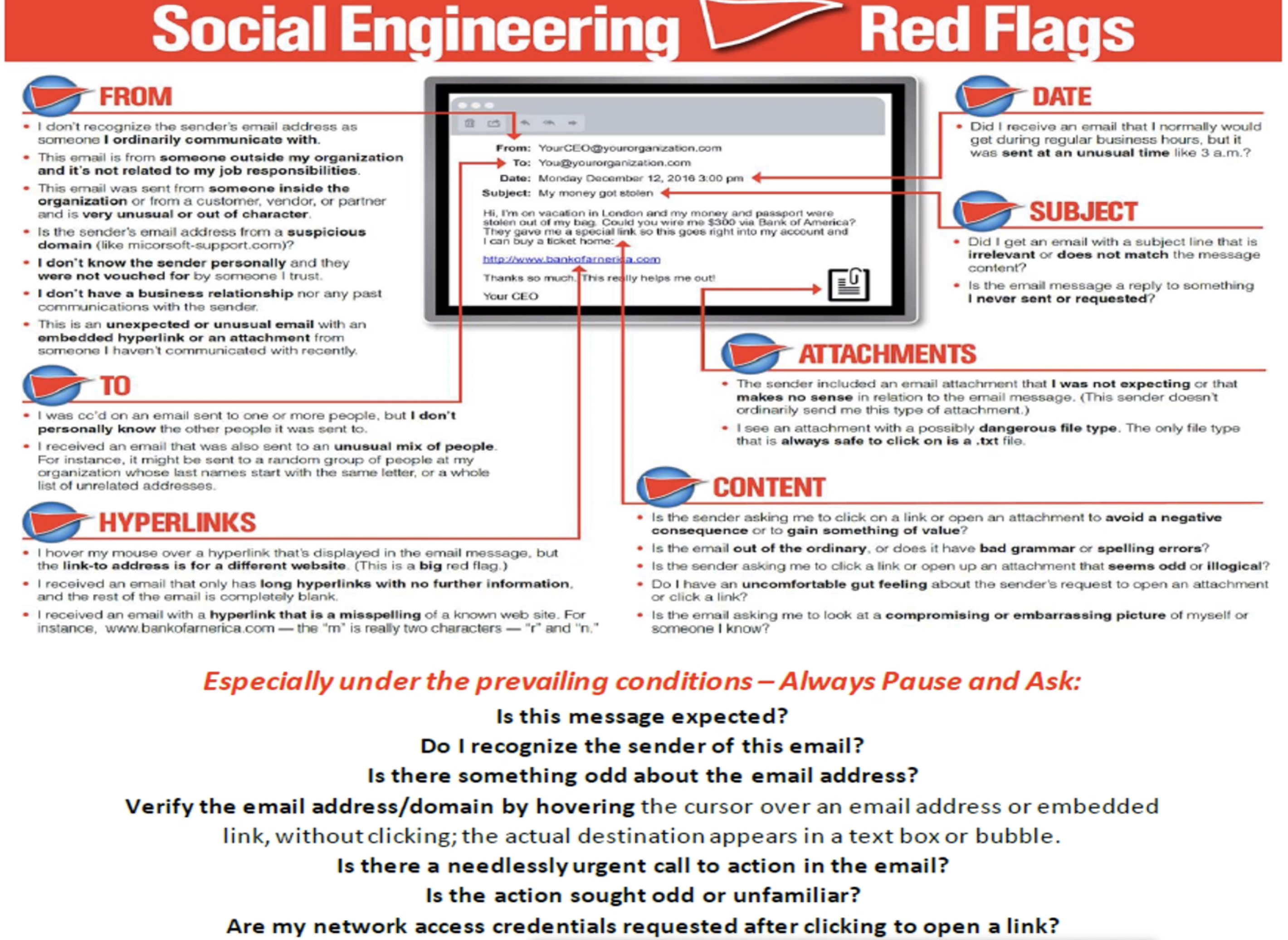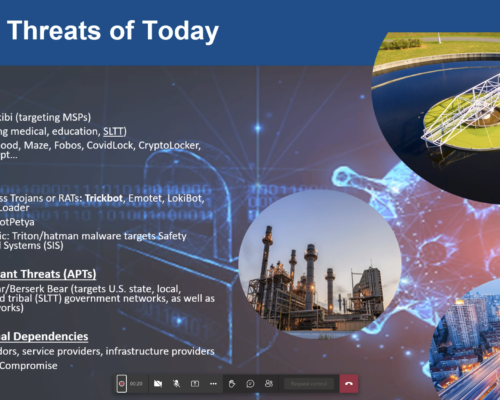Homeland Security CISA Cybersecurity Advisor Rivera Gives Presentation
Robeson Community College and the RCC CyberConnect Grant hosted a virtual presentation on Cybersecurity, in honor of October being Cybersecurity month.
Guest presenter Domingo Rivera, the Cybersecurity Advisor for the Cybersecurity and Infrastructure Security Agency (CISA) Region 4 (North Carolina), a division of Homeland Security, delivered a virtual presentation titled ‘The Cybersecurity Threat Landscape.’
During his talk, Rivera touched on many topics from ransomware threats to how to protect yourself while online and how to report cybercrimes.
“The most targeted places are government and healthcare, that is going to continue that way,” said Rivera. “You follow the money, that’s basically what it boils down to. Doing ransonmare can be profitable [for hackers.]”
As Rivera went through examples of Cyber Threats today that have resulted in billions of dollars lost in revenue for companies, he pointed out one example
“There is a new variant of ransomware WannaCry. It actually shut down one of the largest semiconductor companies that makes a lot of chips for cell phones.”
So how are you targeted, and what can you do to protect yourself?
Rivera suggest erring on the side of caution when it comes to social networking, attending conferences, applying to job postings, and using unsecure wi-fi such as when you are traveling at an airport.
“You are more important than you think,” said Rivera in reference to the threat of cybercrime. “If someone seems a little shady, they probably are.”
Rivera went through examples of how to detect fraudulent emails and phishing scams.
“Some of the red flags to look for include – do you know this person, are you expecting this type of email, does it have a link you have to click on,” Rivera asked. “You can hover with your mouse over the link and if it looks suspicious, report it to an IT Department or just delete and ignore it. If you unsure, you can always just look for a link by searching for it in your browser.”
The email that was shown during the lecture had a link that said bankofarnerica.com, which looks almost like bankofamerica.com, but is misspelled.
“Some people would not notice that the link is misspelled, and that’s when you can fall victim to a scam.”
Rivera said PDF’s are easy to infect by a hacker, by hiding the extension and suggests to be suspicious of emails from unknown senders.
He also provided a list of things you can do to protect yourself from ransomware and phishing attacks, including:
- Do not provide personal or corporate sensitive information requested via email
- Do not use the contact information provided by the email or phone request. Contact the organization directly to verify.
- Do not send personal sensitive information on the internet without checking the security.
- Keep all hardware, software and operating systems up-to-date
- Always backup your data regularly and test/run drills to restore data from backups regularly
- Educate your family and co-workers on safe internet practices
- Use strong passwords and multi-factor authentication
- Keep software on your devices up-to-date, enable automatic updates
- Check privacy policies and security setting to see how your information is stored and shared.
- Shop online with trusted and reputable companies
- Don’t download attachments or click links you are unsure of.
- Avoid connecting to public Wi-Fi
- Use credit cards instead of debit cards, as credit cards provide more protections when it comes to fraudulent activity
- Be wary of emails requesting personal information
If you’ve been a victim of a cybercrime, Rivera encourages you to report it immediately to local authorities, something he says often doesn’t happen.
“There is a stigma and embarrassment attached to falling victim to a cybercrime, but it shouldn’t be that way. You did nothing wrong. Anything that is infected on your computer can be removed from any network, it can be deleted.”
Rivera added that “If you are a victim of a crime, or a child is a victim of a crime, you can call your local authorities or you can also file a complaint with IC3.gov, that is a website administered by the FBI. The FTC also has protections that pertain to children, and you can report crimes at www.ftc.gov/complaint.”














